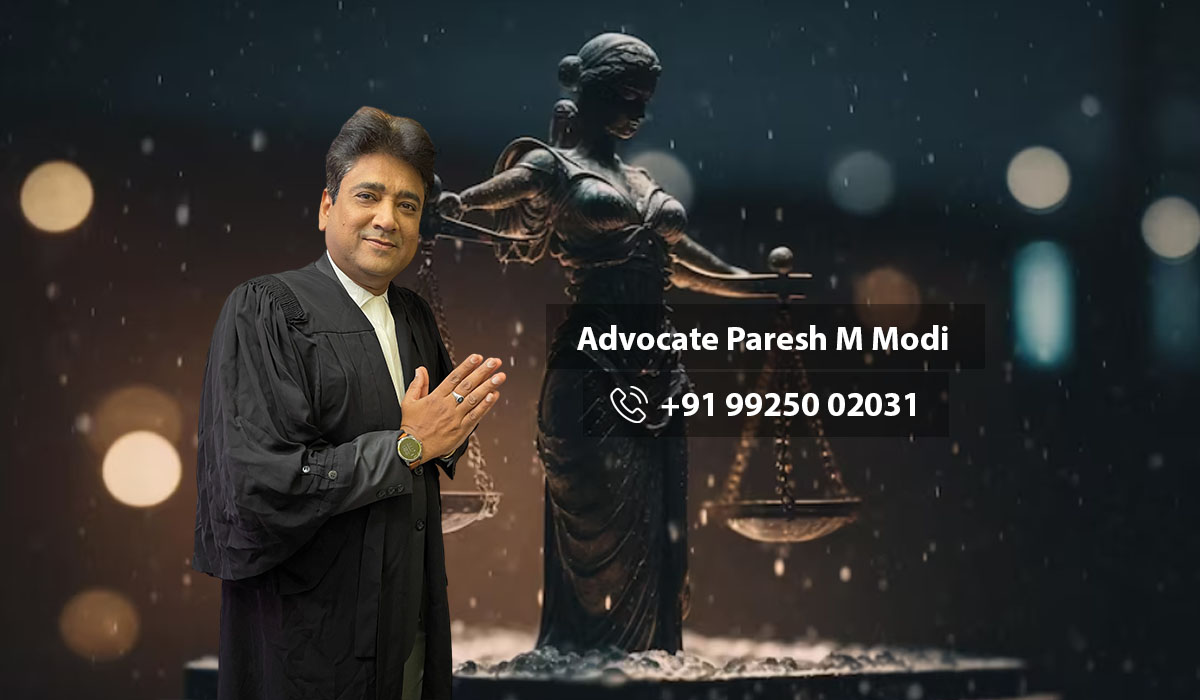Customs Act Lawyer in Gujarat India | 9925002031 | Customs Law Advocate in Gujarat India | Advocate Paresh M Modi
The Customs Act, 1962, is the primary legislation in India that governs the import and export of goods and regulates customs duties. It empowers the government to levy and collect customs duties and also provides for various measures to prevent the illegal import and export of goods. Here are some key aspects of the Customs Act in India, Majorly at airport people come with the prohibited items like Drugs, Gold, Diamonds and many more….
- **Powers of Customs Officers**
– Customs officers have broad powers to inspect, search, and seize goods suspected of being smuggled or undervalued.
– They can also examine persons, books, records, and documents related to the import or export of goods.
- **Duties and Prohibitions:**
– The Act outlines the duties and prohibitions related to the import and export of specific goods.
– It classifies goods and prescribes rates of duty for different categories.
- **Offenses and Penalties:**
– The Customs Act specifies various offenses, such as smuggling, evasion of duty, and providing false information.
– Penalties for offenses can include fines, confiscation of goods, and imprisonment.
- **Adjudication:**
– Customs authorities can initiate adjudication proceedings to determine whether an offense has been committed.
– Adjudicating officers have the authority to impose penalties and order the release of confiscated goods.
- **Confiscation:**
– The Act allows for the confiscation of goods that are imported or exported in contravention of the law.
– Confiscation may extend to conveyances used in the commission of offenses.
- **Appeals:**
– The Act provides for the right to appeal against orders of adjudicating authorities to higher appellate forums, including the Customs, Excise and Service Tax Appellate Tribunal (CESTAT) and the High Court.
- **Prosecution: **
– In addition to adjudication, the Act allows for the initiation of criminal prosecution in certain cases.
– Criminal prosecution may result in fines and imprisonment.
- **Court Process: **
– Cases under the Customs Act may go through a two-tier process involving adjudication by customs authorities and subsequent appeals in higher forums.
– Criminal prosecutions are typically heard by Magistrate Courts.
Airport Customs Case Lawyer in Gujarat India | 9925002031 | Best Advocate for Customs Case at Airport in Gujarat India | Advocate Paresh M Modi
It’s important to note that specific details regarding punishments and court processes can vary based on the nature and severity of the offense. Individuals and businesses involved in international trade are advised to be familiar with the provisions of the Customs Act to ensure compliance and avoid legal consequences. Legal advice should be sought for specific cases, as laws may be subject to amendments and updates.
Penalties for gold smuggling in India are governed by various laws, including the Customs Act, 1962. It’s important to note that laws and penalties are subject to change, so it’s advisable to check for the most recent updates or consult with legal professionals for the latest information.
Here are some general details on penalties related to gold smuggling at airports in India:
- Confiscation of Goods:
- If a person is caught smuggling gold, the customs authorities have the power to confiscate the gold and any other items involved in the smuggling attempt.
- Penalties and Fines:
- The Customs Act provides for the imposition of penalties and fines for offenses related to smuggling, including gold smuggling.
- Penalties may be a percentage of the value of the smuggled goods, and fines may also be levied.
- Prosecution:
- In addition to penalties, criminal prosecution may be initiated against individuals involved in gold smuggling.
- Criminal cases may lead to imprisonment, fines, or both, depending on the severity of the offense.
- Adjudication Process:
- The customs authorities follow an adjudication process to determine the nature and extent of the offense.
- Adjudicating officers have the authority to decide on penalties and confiscation.
- Appeals:
- Individuals aggrieved by the decisions of adjudicating officers have the right to appeal to higher forums, including the Customs, Excise and Service Tax Appellate Tribunal (CESTAT) and the High Court.
It’s crucial to emphasize that smuggling is a serious offense, and penalties can vary based on factors such as the quantity and value of the smuggled goods. Additionally, changes in laws or regulations may have occurred since my last update. For the most accurate and up-to-date information, it is recommended to consult with legal experts or refer to the latest versions of relevant legal texts and notifications. For customs Act matters you may contact Advocate Paresh M Modi on mobile no. 9925002031, or mail on”advocatepmmodi@gmail.com“

